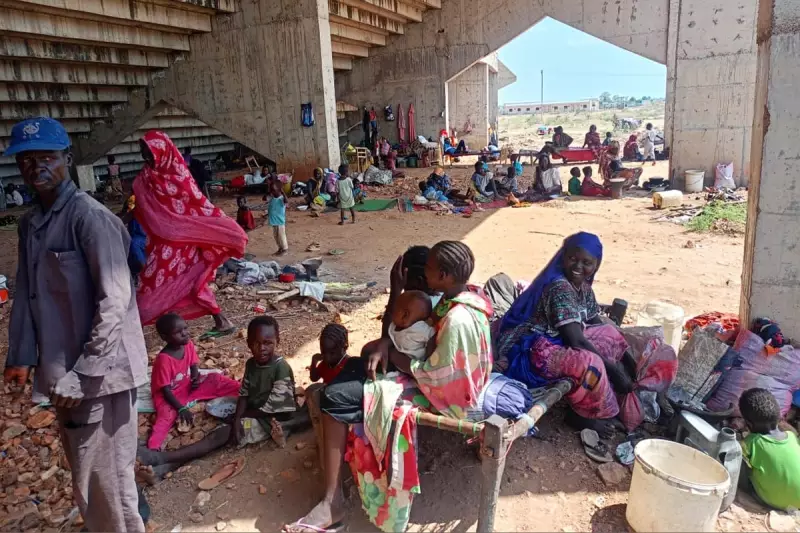
The spectre of mass starvation now looms over Sudan, with the World Food Programme (WFP) issuing a catastrophic warning that the nation is teetering on the brink of the world's worst hunger crisis. The relentless civil war between the national army and the paramilitary Rapid Support Forces (RSF) has effectively strangled aid delivery, leaving millions to face a brutal fate.
Humanitarian access has been systematically severed, particularly in the capital, Khartoum, and the western Darfur region—areas bearing the brunt of the conflict's violence. WFP executive director Cindy McCain delivered a stark assessment, stating that the Sudan crisis is poised to become "the world’s worst hunger crisis" if immediate action is not taken.
Aid Blockades and a Paralyzed Response
The mechanics of the catastrophe are as deliberate as they are devastating. The WFP reports that its life-saving assistance is being deliberately blocked by the warring parties. Convoys are routinely denied permission to cross front lines, and bureaucratic impediments create a maze of delays. Most alarmingly, aid workers report widespread looting of supplies, stripping communities of their last lifeline.
This systematic obstruction has created a perfect storm. The United Nations confirms that 18 million people across Sudan are facing acute hunger, a number that is escalating daily. The situation is most dire for children, with UNICEF reporting that 730,000 children are suffering from severe acute malnutrition.
A Nation Crippled by Conflict
The conflict, which erupted in April 2023, has shattered the country's infrastructure and economy. Markets have been destroyed, farming activities abandoned, and supply chains obliterated. The price of basic food staples has skyrocketed, placing a formal meal far beyond the reach of ordinary citizens.
The international community's response is hamstrung by the same logistical nightmares and security threats plaguing local aid groups. Despite the overwhelming need, the WFP's capacity to respond remains a fraction of what is required, leaving a gaping chasm between the aid available and the starvation on the ground.
A Dire Warning for the Future
UN officials are not mincing words. The Executive Director of UNICEF, Catherine Russell, described the situation as a "humanitarian catastrophe of epic proportions." The consensus is clear: without a cessation of hostilities and guaranteed, safe access for aid agencies, Sudan will descend into a full-scale famine, with mortality rates soaring, particularly among the most vulnerable.
The world is being put on notice. The crisis in Sudan is no longer an emerging threat—it is a current reality of immense suffering demanding an immediate and unimpeded global response.






